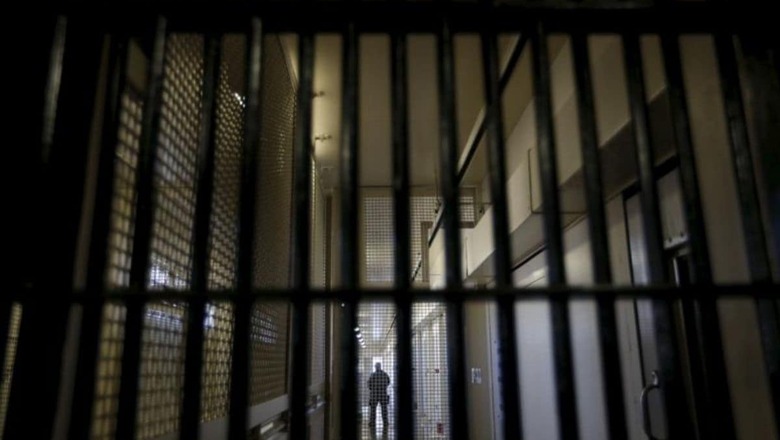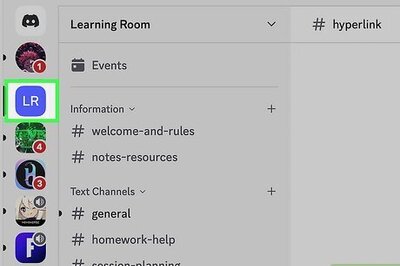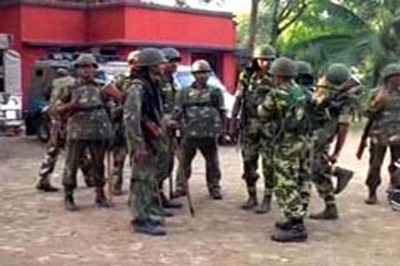
views
The National Commission for Protection of Child Rights (NCPCR) has conducted a study on the “Educational Status of Children of Women Prisoners in India”, and among the many problems faced by these children, the commission has listed one related to the Bible. The report also mentions that while conducting the pilot study in Delhi, the commission found major gaps in the existing prison management system where children are placed in hostels without the proper orders of the child welfare committee, district collectorate, or department of social welfare, which compromises the safety and security of these children.
The report can be accessed on the NCPCR website. It was uploaded on Tuesday afternoon.
The defined objectives of the research were:
- To study the arrangements made available by the prison administration to impart Early Childhood and Early Education (ECCE) programme to children of women prisoners.
- To understand the nature of the problems of children residing in prisons.
- To evaluate the overall measures taken by the government authorities, non-governmental organisations, and other related institutions to ensure the fundamental rights of the children.
- To understand the education needs and examine the education status of the children of women prisoners living in child care institutions.
- To provide recommendations regarding the education status of the children of women prisoners.
Problems faced by the children, according to NCPCR
Under the section, “Problems identified during the visits and issues observed in jails”, the report mentions that the researchers found stacks of the Bible in creche facilities. Giving an example, the report said, “It was observed during the visits that the prison administration of Nari Bandi Niketan in Lucknow has given permission to an NGO to impart moral and religious teachings of Bible to children of women prisoners belonging to a different religion.”
The researchers found more than 10 Bibles stacked in the creche facility, said the report. It was also observed during the pilot study conducted in Delhi that the same NGO working in Nari Bandi Niketan, Lucknow, has a registered children’s home in Noida, Uttar Pradesh, under the name of Asha Sadan, where children of women prisoners from Tihar, Mandoli and Ghaziabad are admitted, it said.
Blaming the authorities, the report said, “Thus, it is a gross negligence on the part of state machinery who fail to bear the responsibility towards these children, eventually provide access to these vulnerable children and further perpetuate their vested interests.”
The report has raised problems like “lack of facilities”, “lack of awareness” and “access to education”. It has also inserted its observations on the Bible being taught.
Under the section, “Problems identified during the visits of children- Homes and hostels”, it listed another incident. “Asha Deep Foundation in Ghaziabad was found imparting religious teaching of a particular religion other than one practiced by the children,” the report said. The commission conducted a surprise visit and retrieved around 26 Bibles from the lockers and rooms of the non-Christian children, it added.
“We have taken action against such instances, where we found the identity of prisoner women’s children being compromised with. This is happening due to the state and authorities’ lack of participation, and they have left such important activities of providing education and recreation on NGOs. The NGOs follow the funders’ mandate. Hence we see the Bible being taught to these children,” said NCPCR chairperson Priyank Kanoongo. “Jail authorities are duty-bound to provide education and access and other facilities to these children under the Juvenile Justice Act and the Right To Education. They are duty-bound and jail manuals must be reworked accordingly.”
The report mentions, “The Juvenile Justice Act, 2015 defined these children as ‘Children in need of care and protection’ and makes it binding on the State machinery to ensure that these children do not fall prey to institutions which not only compromise their safety and security but denies them the right to preserve identity, including nationality, name and family relations as recognised by the law without unlawful interference (UNCRC).”
NGOs’ involvement not encouraged in report
NGOs assist prison authorities in admitting children in various children’s homes and boarding schools, which directly violates the norms of the Juvenile Justice Act, 2015, said the report.
According to the guidelines issued by the Supreme Court of India, children, once they attain the age of 6 years, shall be placed with their guardians. “If children are deprived of a normal family environment then the Superintendent of Prison must inform the Directorate of Social Welfare about all children of that age for placing them in a Home run by the Social Welfare Department,” the report said.
The Juvenile Justice Act, 2015, defines these youngsters as “Children in need of special care and protection” and appoints the child welfare committee (CWC) as the nodal authority to ensure that the children of women prisoners, who are dependent on their mothers, are placed in the protective custody of homes or hostels registered under a government department.
“The authorities have to step in as they are duty-bound to curb the NGOs’ role,” said Kanoongo.
Child rights activist Reverend HK Chetty from the Asha Deep Foundation lambasted the report, saying it does not keep India’s stand in the UN in mind. “Does the report say nothing is done with force or compulsion? The child’s willingness is always an important factor,” said the activist. “If one reads the United Nations Convention on the Rights of the Child, to which India is a signatory, one will know that if the child is willing to learn about a religion, there is no harm, if no force is used.”
In 2019, the Odisha government asked all district collectors to ensure the secular credentials of all child care institutions (CCIs) in the state were upheld, following observations of the NCPCR that certain CCIs were giving overemphasis on a specific religion.
Read all the Latest News, Breaking News and Coronavirus News here. Follow us on Facebook, Twitter and Telegram.



















Comments
0 comment